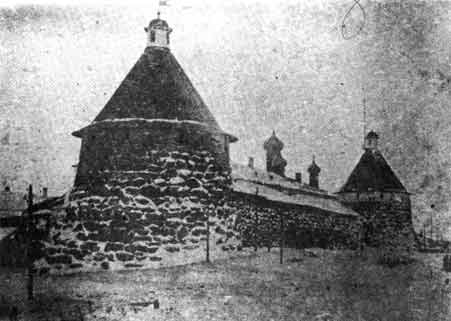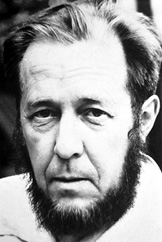Deprecated: trim(): Passing null to parameter #1 ($string) of type string is deprecated in
/home/aoiusa/public_html/wp-content/plugins/sexybookmarks/public.php on line
388
Deprecated: trim(): Passing null to parameter #1 ($string) of type string is deprecated in
/home/aoiusa/public_html/wp-content/plugins/sexybookmarks/public.php on line
394
Deprecated: trim(): Passing null to parameter #1 ($string) of type string is deprecated in
/home/aoiusa/public_html/wp-content/plugins/sexybookmarks/public.php on line
400
From Ecumenical News International (26 August 2009):
By Sophia Kishkovsky
Moscow, 26 August (ENI)–The Solovetsky Islands off the coast of Russia’s northern Arkhangelsk region – settled by monks in the 15th century – became in the 20th century a center for the Soviet Gulag system of prison camps. Now the monastery archipelago should become a spiritual center not only for Russia but for all of Europe, said Patriarch Kirill of the Russian Orthodox Church when he visited the area in August.
The Patriarch’s grandfather, a priest, was a prisoner in the island camp, whose cruelty was immortalized in dissident Alexander Solzhenitsyn’s book, “The Gulag Archipelago”.
Kirill said it was a miracle that his grandfather, Vasily Gundyayev, had survived, and at a 22 August memorial service, the Patriarch spoke of the spiritual strength that was demonstrated on the islands during the Soviet era.
“We believe that these sufferings and torments have strengthened the power of the Church as it grows with a divine power rather than with a human one,” the Patriarch said at the Golgotha-Crucifixion Hermitage on Anzer Island, where sick Gulag prisoners were sent to die.

The towers of Solovki Monastery in the winter of about 1930, when it was a concentration camp
When the Solovetsky Islands were seized by the Bolsheviks after the 1917 Russian Revolution, its monks became prisoners. They were joined by thousands of other clergy, believers, intellectuals, and aristocrats whom the new regime wanted to eradicate.
“The Lord himself chose this deserted island, so that his death and resurrection were specially commemorated here, the Lord himself chose this place for people to take incomparable sufferings and torments,” said Kirill.
While on the islands, Kirill called for the State to turn over all the property of the monastery to the Russian Orthodox Church to allow it to complete the restoration of the complex and open an Orthodox educational institution there.
Solovki, as the islands and monastery are known, has in recent years witnessed disputes between the church, museum workers, and non-governmental organizations on how such monuments should be run. The monastery and grounds are shared by the church and a State-run museum.
A growing number of pilgrims and tourists have been coming to Solovki, which, despite the isolation of the area, is famous for its scenery and marine life. Human rights organizations such as Memorial, an NGO that studies Soviet repression, also regard the islands as vital to understanding 20th century Russian history.
Kirill praised the work of such organizations, but said that the church must study its own history and that “people should know what to avoid in building ideological illusions,” the Interfax news agency reported.
“It would be good if here, on Solovki, a national center for the study of the feat of the Russian church in the 20th century, the feat of the martyrs and confessors, was created,” the Patriarch said at a meeting with the monastery’s monks and board of trustees.
While in northern Arkhangelsk, Kirill visited a cathedral that is part of a monastery complex that was shut down in Soviet times. The monastery’s facilities were taken over by Sevmash, a factory that now builds nuclear submarines. Nicholas Kalistratov, the director of the factory at Severodvinsk, told the Patriarch that a new submarine would be named after St Nicholas.
A series of submarines has already been named after Russian princes, including two vessels, “Dmitry Donskoi” and “Alexander Nevsky”, who are also saints.
On arriving in Severodvinsk on 22 August, Kirill visited the “Dmitry Donskoi” and addressed the naval officers and shipbuilders.
“Everything that the Russian Orthodox Church has done over the course of a millennium has been directed towards strengthening the spirit of its people,” said the Patriarch. “And today the Russian church places great importance on cooperation with the armed forces, because no money can compensate those losses that a person who has taken the oath is ready to bear.”
Kirill presented an icon of the Mother of God as a gift to the “Dmitry Donskoi” and small images of Christ to those on the vessel.

